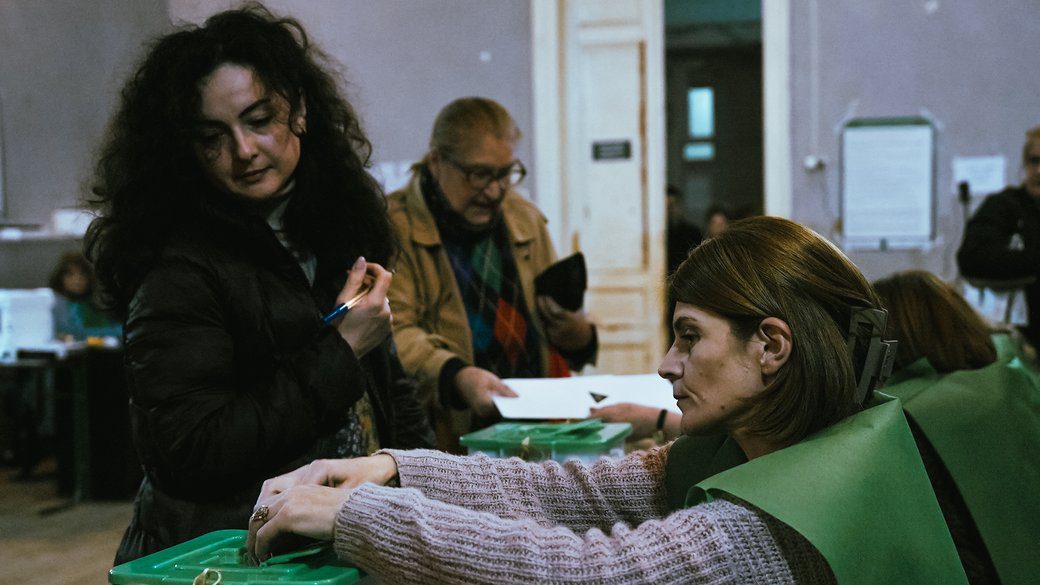
International observers: Georgian elections marred by pressure and intimidation
International observers reported that while Georgia’s parliamentary elections offered voters a choice between 18 candidate lists, the process was significantly undermined by entrenched polarization, divisive campaign rhetoric, and widespread voter intimidation.
The Georgian government has been distancing itself from the EU and slowing its European integration process, particularly after adopting a Russian-style “foreign agents” law that limits organizations with foreign funding and demonstrating an increasingly submissive attitude toward Russia by its statements regarding Russian-Ukrainian war.
The observers’ statement was issued on Sunday by a joint observation mission comprising 529 observers from 42 countries, including representatives from ODIHR, OSCE Parliamentary Assembly, PACE, NATO Parliamentary Assembly, and the European Parliament.
“Imbalances in financial resources, a divisive campaign atmosphere, and recent legislative amendments were of significant concern throughout this election process,” said Pascal Allizard, Special Co-ordinator and leader of the OSCE short-term observer mission.
PACE delegation head Iulian Bulai highlighted specific issues: “These elections were marked by high polarisation of the political and media landscape, hate speech against the opposition and civil society, and antagonism towards the office of the President.”
He noted widespread cases of vote-buying and party-organized intimidation, particularly in rural areas.
The observers reported that while election day procedures were generally well-organized, the atmosphere was tense, with frequent compromises of voting secrecy and reports of voter intimidation. Civil society organizations faced additional challenges due to the recently adopted “law on transparency of foreign influence,” which observers said impacted their ability to work without undue pressure.
“We continue to express deep concerns about the democratic backsliding in Georgia. The conduct of yesterday’s election is, unfortunately, evidence to that effect,” stated Antonio López-Istúriz White, Head of the European Parliament delegation. He added that they will monitor whether the next government “chooses to realign with EU values and norms and reverse the negative tendencies of the last months.”
According to preliminary results from the Central Election Commission, the ruling Georgian Dream – Democratic Georgia party received 54.273% of the votes. Opposition parties that passed the electoral threshold have refused to recognize the results, alleging falsification and violations. It is worth noting that according to pre-election polling, Georgian Dream was expected to receive 35% of the votes, while the combined pro-European opposition parties were projected to secure a parliamentary majority.
Despite this, Prime Minister Irakli Kobakhidze announced that parliament will convene as scheduled and the government will be approved, regardless of the opposition’s stance on the election results.
Related:










